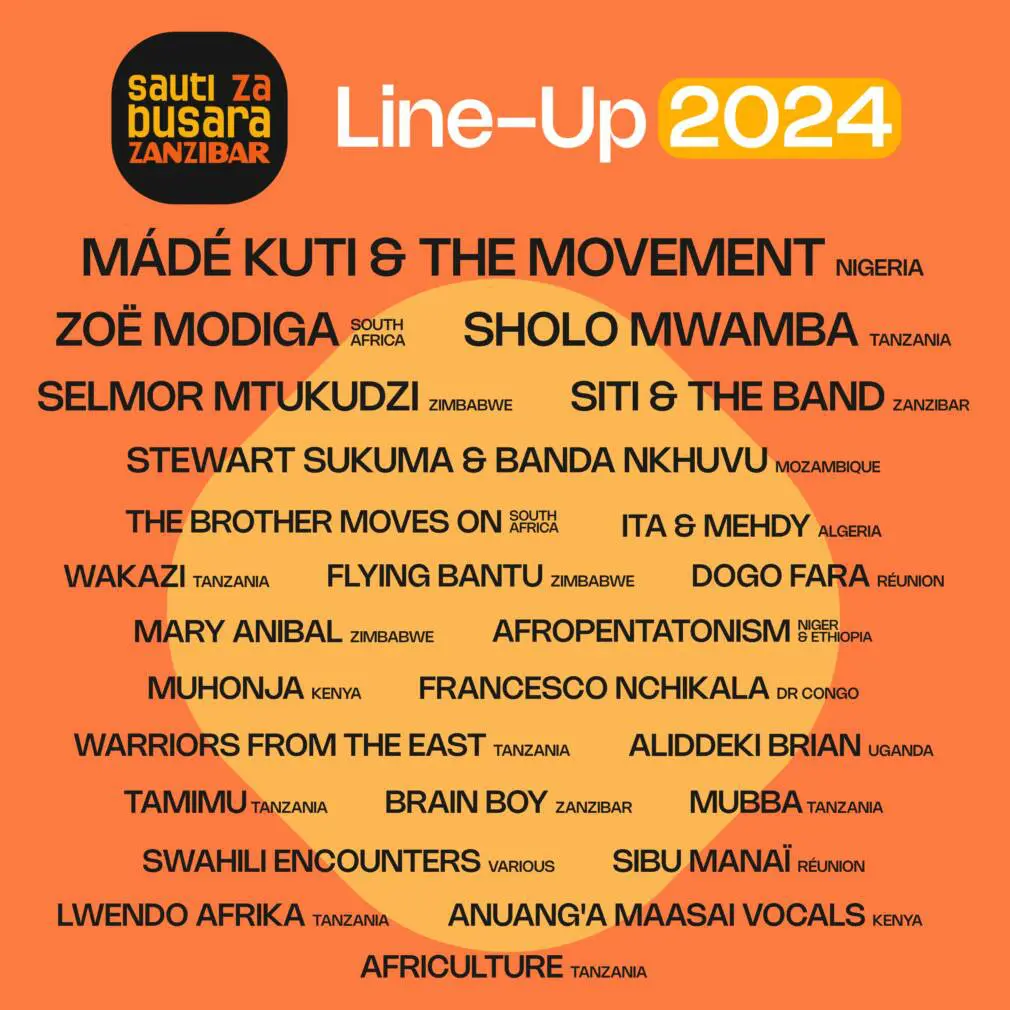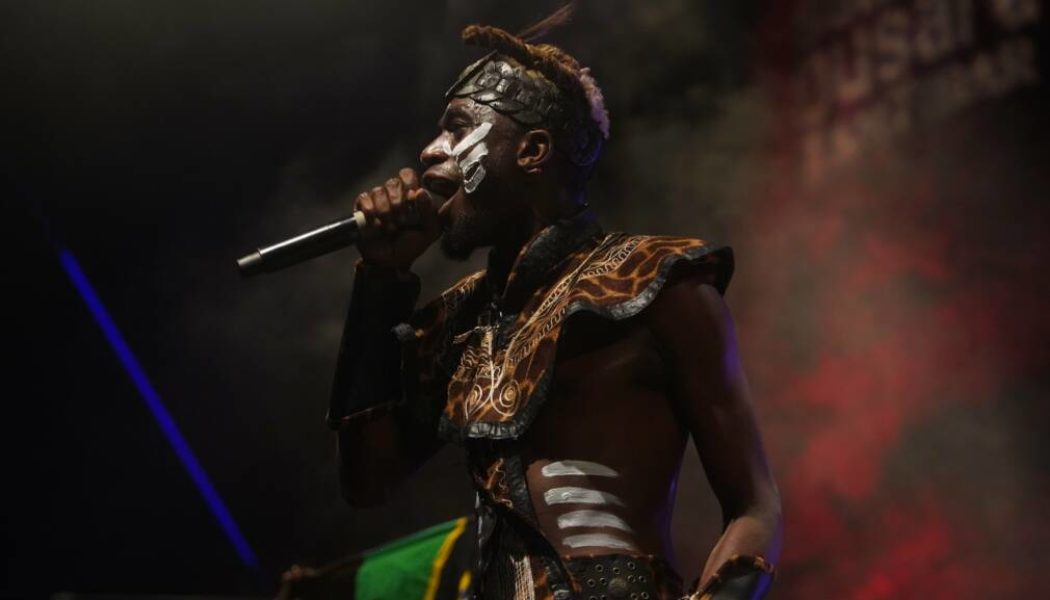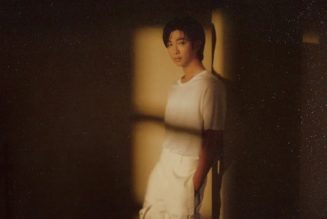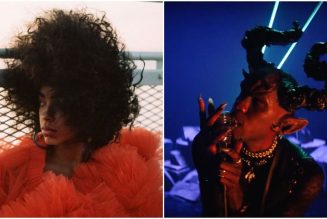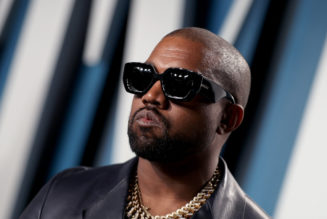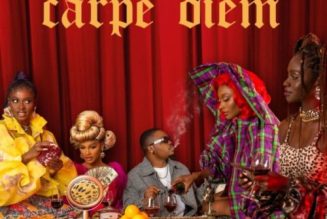For more than 20 years, the Zanzibar-based festival has been showcasing the richness of Tanzanian and African music, and perpetuating the tradition of this diverse archipelago by welcoming artists from all over the world. Discover the program for the 2024 edition, which will take place from February 9th to 11th.
As the event industry is becoming increasingly aware of festivals’ socio-political stakes, many cultural and artistic events are now championing issues such as women’s rights, ecology, access to education, and more. In Zanzibar, Tanzania, Sauti za Busara (“sounds of wisdom”) has been combining a social and local dimension with cutting-edge artistic programming for 20 years now, with an emphasis on discovery and uniqueness. Launched in 2003 in Stone Town, the old town at the heart of Unguja Island (the archipelago’s main island), the festival is currently preparing its 21st edition which will take place from February 9 to 11, 2024, and which promises to be just as vibrant as its predecessors. “We received applications from artists from all over the world, nearly 500 of them“, recounts Journey Ramadhan, festival director. “It was a very tough job for the jury to draw up the list of selected artists.”
With a historic focus on the East African scene, the audience (4,000 people each evening) will have the opportunity to witness established Tanzanian artists such as Sholo Mwamba, Wakazi, and the group Siti & The Band, who have embraced the island’s rich taarab heritage, blending it with jazz, funk, and reggae. The festival also welcomes musicians from other regions, notably southern Africa, such as Selmor Mtukudzi (Zimbabwe), daughter of the legend Oliver Mtukudzi, as well as singer Zoë Modiga and the psychedelic jazzmen of The Brother Moves On (South Africa). Finally, on the West and North African side, Mádé Kuti, son of Femi and grandson of the illustrious Fela, will be on stage with his Nigerian big band The Movement, while Algerians Ita & Mehdy will present their traditional-electronic cocktail. “For over two decades, the festival has been offering artists a platform to showcase their identity,” says Journey Ramadhan. “They are then very often invited to take part in other international events.” It’s a platform that also opens the stage to female artists, often under-represented in the industry’s major events: Zimbabwean singer Mary Anibal, Kenyan artist Muhonja and Sibu Manaï from La Réunion, for example, are all part of the lineup.
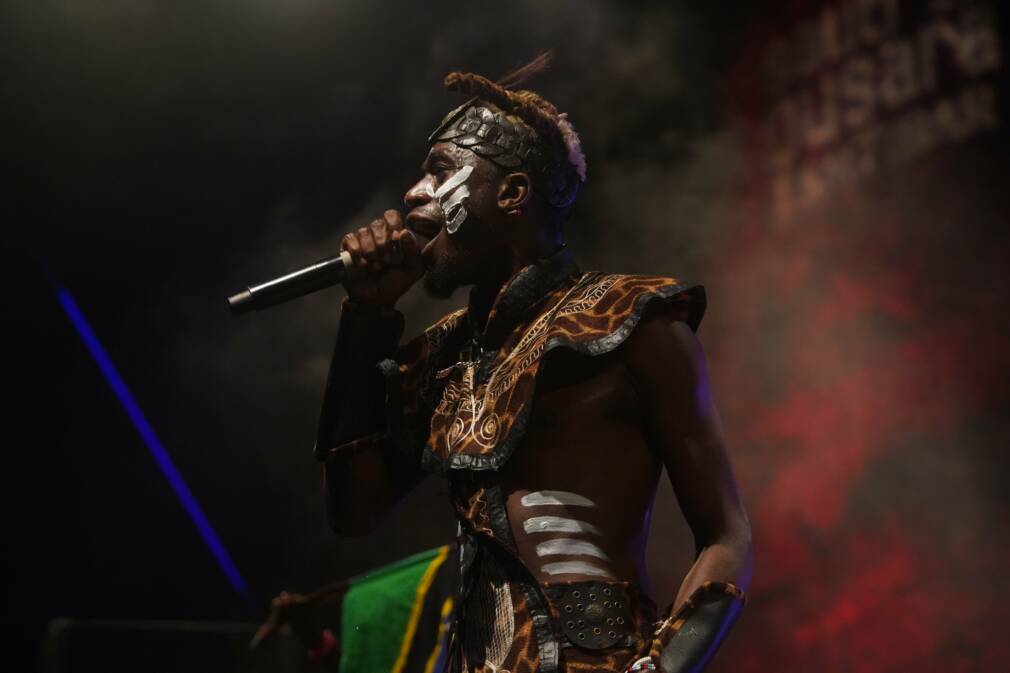
Beyond the music and the events, the key to Sauti za Busara’s success is also its deep involvement in the archipelago’s dynamics and communities. During the preparation and running of the festivities, jobs are created and training is provided. The skills acquired by the trainees range from sound and stage management to lighting, production, marketing, press, and more. “The festival has done a lot for Zanzibar,” says Journey Ramadhan. “It has put Zanzibar on the map of international festivals, it has strengthened the local economy and, at the same time, has provided people with skills and livelihoods.”
At the dawn of this 21st edition, as the live music sector was not so long ago plagued by Covid, we can’t help but ask Mr Ramadhan the key to this longevity, all the more impressive given the often neglected state of East Africa’s creative industries. What is Sauti za Busara’s secret? “Well, everyone who makes the festival happen, in one way or another. The staff, the artists, the sponsors, the donors… the public!” Thank you to all of them, and let’s meet on February 9th!
